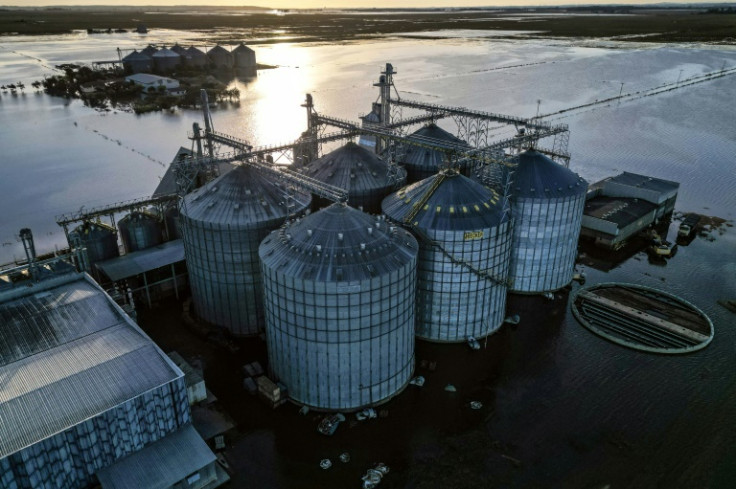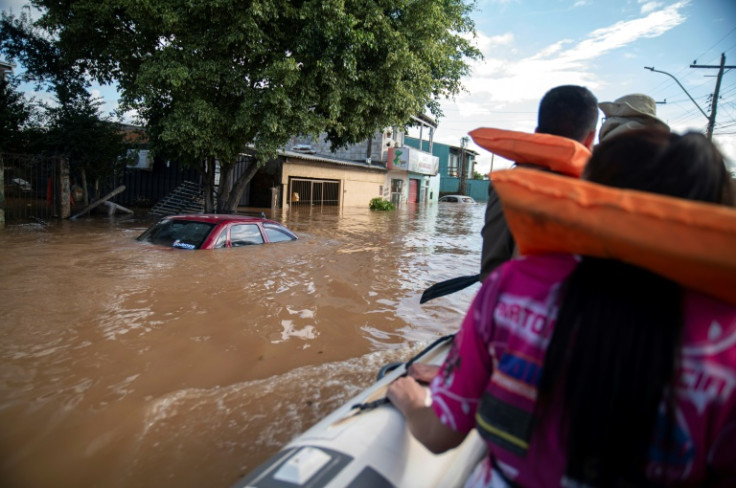
The skies opened once again Friday in southern Brazil, offering little respite for those whose homes have been swallowed by floodwaters, while the number of people forced to evacuate doubled in 24 hours.
Residents of the state of Rio Grande do Sul were bracing for a weekend of heavy rainfall, hitting just as waters that turned city streets into rivers had begun to subside.
The deluge -- which experts link to climate change exacerbated by the El Nino weather phenomenon -- has affected almost two million people, leaving 116 dead and 756 injured.
Another 143 people are still missing, according to authorities.
The state capital Porto Alegre, home to 1.4 million inhabitants, tried to resume some normalcy on Friday, with some businesses opening and traffic blocking streets as waters receded.
But then, the menacing grey clouds delivered a fresh downpour.
The region expects precipitation with "intense winds and hail", according to the National Institute of Meteorology.
The MetSul Meteorologia site reported "a new period of intense atmospheric instability," with up to 200 mm of rain by Monday.
The state's Guaiba River, which runs through Porto Alegre, reached historic levels this week.
In the past 24 hours, the number of people forced to flee their homes almost doubled to around 400,000 people, according to civil defense figures.
More than 70,000 are being housed in shelters.
With water supplies still cut, bottles of clean drinking water are a scarce commodity in Porto Alegre, while tanker trucks deliver to shelters and hospitals.
In the devastated town of Eldorado do Sul, boats pass through the flooded streets, carrying food to those who refuse to leave their homes, fearing looting.
Katiane Mello waited for a boat to take her to check on her home, which she fled a week ago when the Guaiba River overflowed and waters rose to the second floor of the house where she lived with her husband and five-year-old daughter.
"We lost our source of livelihood, our store. And the house..." she said, her eyes filling with tears as she surveyed the damage.
The muddy floodwaters have destroyed more than 85,000 homes, and struck a blow to the economy of the important agricultural region.
In the rice-growing areas surrounding Porto Alegre, farmer Daniel Dalbosco said he had lost crops under "up to two meters of water".
His neighbors "lost between 40 and 50 hectares. It was very, very complicated," he said.
The disaster in Rio Grande do Sul is the result of the "double whammy of El Nino plus climate change", said Clare Nullis, spokeswoman for the UN meteorology agency WMO, at a media briefing in Geneva.
"Even when El Nino fades, which it will do, the long- term effects of climate change are with us. Every fraction of a degree in temperature increase means that our weather will become more extreme.
"Our weather is on steroids. When we are at war with nature ... nature strikes back, and nature has unfortunately, you know, hit back in Brazil."







